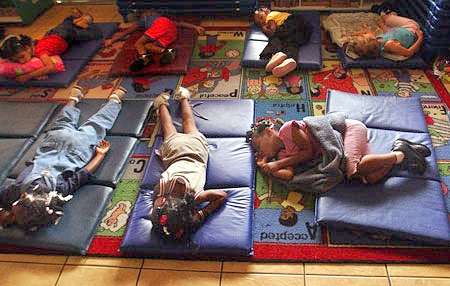Report On Potential Harms Of Daycare Welcomed
 Media Release 20th March 2016
Media Release 20th March 2016
Family First is welcoming Brainwave Trust’s report Childcare: How are the Children Doing? and says that it rightly puts the focus on the welfare and best interests of children first.
“The findings in this report echo the same concerns we raised in 2012 with our report “WHO CARES?”: Mothers, Daycare and Child Wellbeing in New Zealand” which argued that attending daycare for an extended time and the consequent separation from parents is a significant source of stress for many very young children which could have potential long-term consequences for their mental and physical health as adults. With government spending on early childhood education almost tripling in the past ten years and more than $1.6b being spent this year, it is essential that the benefits of the investment in ECE are weighed against the real needs of children and their families – based on the latest research,” says Bob McCoskrie, National Director of Family First NZ.
As stated in “Who Cares”, daycare continues to be evaluated by later child outcomes in terms of ‘skills’ such as language or ‘school readiness’. But what has proved elusive is an understanding of how the young child is affected emotionally and physiologically, and how they experience daycare while they are actually there. Babies can’t speak and toddlers have limited verbal abilities. However, a new generation of research from the biosciences is starting to provide an insight into the real-time effects of daycare. These findings are at odds with the information most policy makers and members of the public have been exposed to. Moreover, there is no mention of this evidence by either the Ministry of Education or the Education Review Office (ERO), which regularly monitors New Zealand’s childcare centres.
“Our babies and toddlers are being used in a massive social experiment and policy makers are too scared to ask the hard questions around whether this is in the best interests of both the child and the family.”
“There is growing evidence of profound beneficial neurobiological effects a mother’s physical presence has on her young child that cannot be achieved by anyone else including paid childcare workers. Mothers have been undervalued,” says Mr McCoskrie.
“As stated in our 2012 report, full-time parenting should be seen as a child’s right, and any discussion of daycare should cease communicating what is assumed adults are interested in and instead make judgments about what is likely to be in children’s best interests.”
“This latest report adds to the compelling evidence that the political and policy focus has been on the needs of the economy and the demands on working mothers, rather than on the welfare of children and the vital role of parents.”
ENDS






